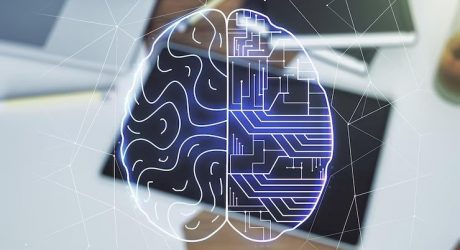In today’s data-driven world, data scientists are in high demand. Their expertise in collecting, analyzing, and interpreting data is essential for businesses to make informed decisions. As we approach 2023, the role of data scientists is becoming even more critical. To stay ahead in this field, data scientists must possess unique skills that enable them to work with complex data and solve complex problems. This article will highlight ten essential data scientist skills crucial for success in 2023. From statistical analysis and machine learning to data visualization and communication, these skills will help data scientists make the most of the vast data available.
Statistics
Statistics is an essential skill for any data scientist. It involves the analysis and interpretation of data using mathematical techniques. A data scientist must have a deep understanding of statistics to make informed decisions based on data. They should be proficient in both descriptive and inferential statistics, which involves the analysis of data sets to identify trends, patterns, and correlations. Regression analysis and hypothesis testing are essential skills for data scientists to understand how variables affect outcomes. These statistical concepts are used to build models, manipulate data, and perform statistical analysis. A data scientist with a firm grasp of statistics can effectively communicate insights and make data-driven decisions.
Programming
Programming is a crucial skill for any data scientist. It involves writing code to extract, transform, and load data from various sources. A data scientist must be proficient in at least one programming language, such as Python, R, or SQL. Strong programming skills are essential for building models, manipulating data, and performing statistical analysis. A data scientist should also be familiar with software development practices, such as version control and testing, to ensure their code is reliable and robust. With strong programming skills, a data scientist can automate repetitive tasks, scale data processing, and implement complex algorithms to extract valuable insights from data.
Machine Learning
Machine learning is an essential skill for a data scientist, as it involves using algorithms to identify patterns and predict outcomes based on data. A data scientist must be familiar with the various machine learning algorithms and when to apply them.
Linear Algebra and Calculus
Linear Algebra and Calculus are crucial skills for any data scientist. Linear Algebra involves the study of linear equations and matrices, essential concepts for understanding machine learning algorithms. A data scientist must be proficient in Linear Algebra to optimize models, perform vector operations, and understand how changes in input data affect output predictions. Calculus involves the study of rates of change and integrals, which are used to optimize models and improve the accuracy of predictions. A data scientist with a strong grasp of Linear Algebra and Calculus can create sophisticated models that accurately predict outcomes based on data, providing valuable insights for decision-making.
Data Wrangling
Cleaning, transforming, and preparing raw data for analysis is known as data wrangling. It involves identifying and correcting errors in the data, handling missing values, and converting data into a suitable format for analysis. A data scientist must be skilled in data wrangling techniques, as raw data is often messy, incomplete, and inconsistent. Data scientists can ensure their analysis is accurate and reliable by performing data wrangling. This process can be time-consuming and requires attention to detail, but it is an essential skill for any data scientist looking to extract valuable insights from data.
Data Visualization
The art of presenting data in an understandable and visually appealing manner is known as data visualization. A data scientist needs a solid understanding of data visualization methodologies to produce powerful visualizations that convey insights from the data.
Big Data
Data scientists need to be knowledgeable with big data technologies like Spark, Hadoop, and NoSQL databases due to the enormous amount of currently available data. They should also have experience in distributed computing and parallel processing.
Data Intuition
Data Intuition is the ability to understand and interpret data without relying solely on statistical analysis. It involves using context, experience, and critical thinking to make
informed decisions based on data. A data scientist must have strong data intuition skills to ask the right questions, identify patterns, and uncover hidden insights. They should be able to look beyond the data and understand the underlying business problem or objective. Data intuition is a skill that can be developed through practice and experience. It is essential for any data scientist looking to make meaningful and impactful decisions based on data.
Storytelling
A data scientist should be able to tell compelling stories that communicate insights from data. They should be skilled in creating visualizations, crafting narratives, and presenting data in a way that is easy to understand.
Collaborative Skills
Data science is a collaborative field, and data scientists must be able to work effectively with teams. Strong collaborative skills like communication, teamwork, and problem-solving are essential for data scientists to succeed in this field.
In conclusion, the mastery of technical and non-technical data scientist skills is critical for success in data science. One of the best ways to develop and master these skills is by enrolling in a Masters in Data Science program.
These programs provide students with a comprehensive curriculum covering technical skills like programming, statistics, machine learning, and linear algebra, as well as non-technical skills like data intuition, storytelling, and collaboration. With the guidance of experienced professors and access to cutting-edge technology, students in these programs can gain hands-on experience and develop a deep understanding of the field. By earning a Masters in Data Science, graduates can position themselves for lucrative careers as data scientists in various industries.
Read Also:




























